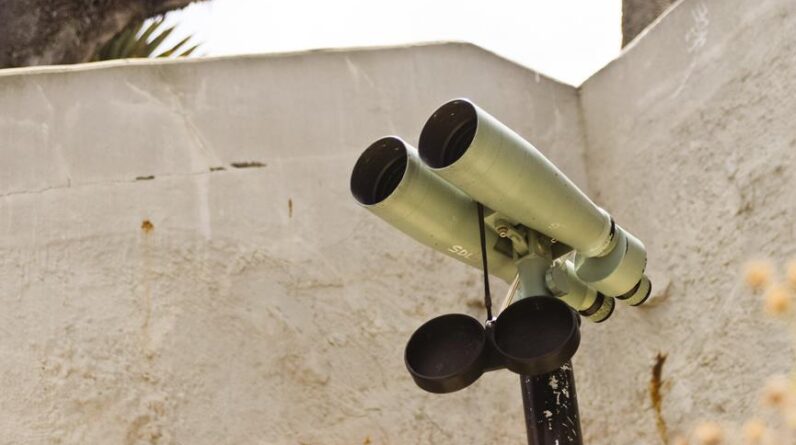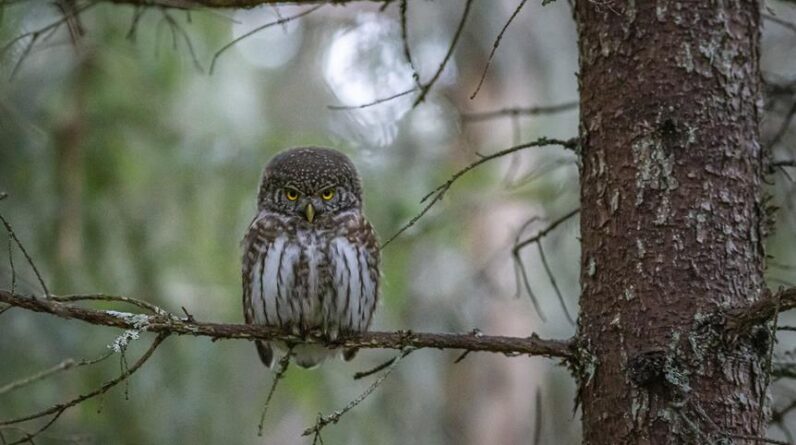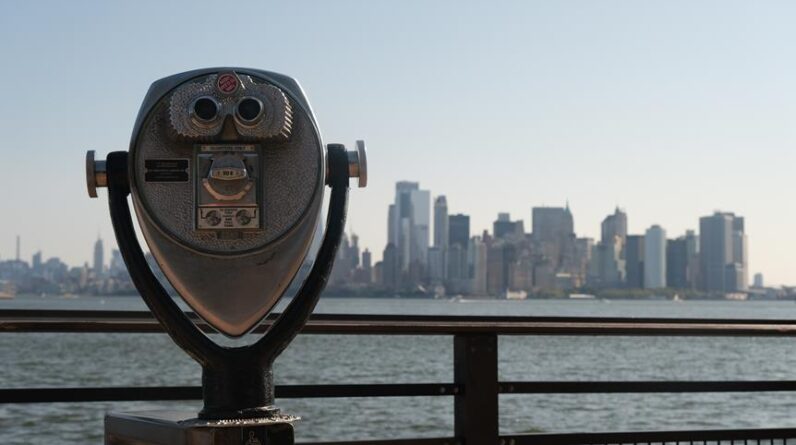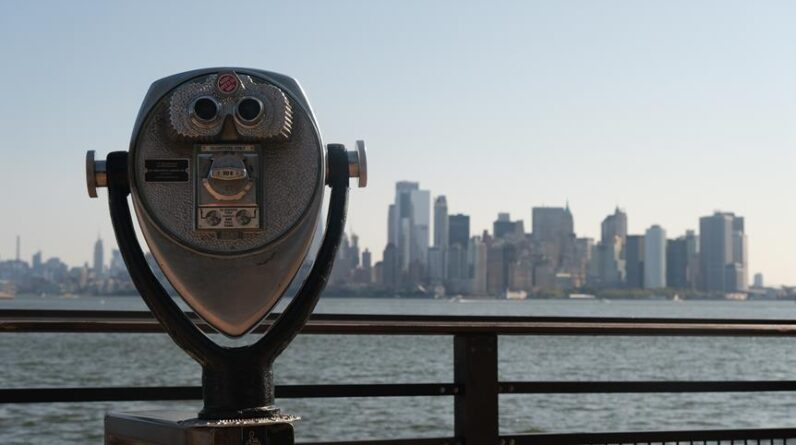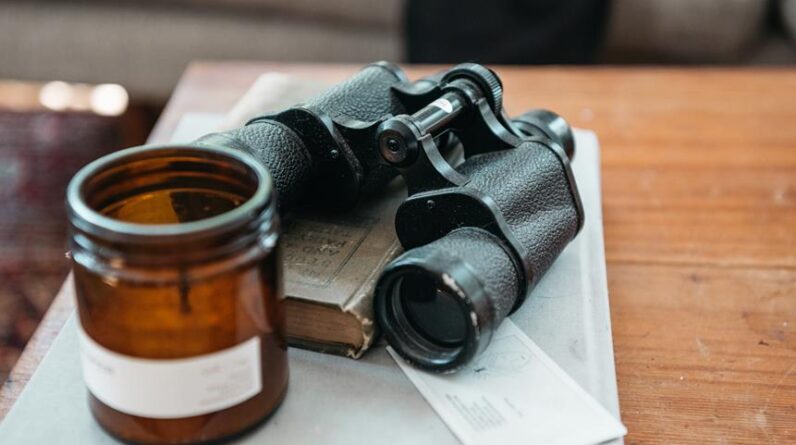
Are you seeking a visual aid that can enhance your outdoor adventures?
Binoculars and spotting scopes are like two sides of the same coin, each offering unique benefits for different purposes.
With binoculars, you'll have the world at your fingertips, allowing you to observe wildlife up close and personal.
On the other hand, spotting scopes provide superior magnification and sharper images, perfect for birdwatching or long-range observation.
So, which one is right for you? Let's delve into the details and find your visual liberation.
Key Takeaways
- Binoculars are compact, lightweight, and easily transportable.
- Binoculars have a wider field of view.
- Spotting scopes offer more detailed and clearer images at longer distances.
- Spotting scopes are ideal for long-distance observation, birding, wildlife observation, and stargazing.
Size and Portability
If you're looking for a compact and easily transportable option, binoculars may be the right choice for you.
Binoculars are designed to be lightweight and portable, making them ideal for those who want to observe nature or engage in outdoor activities without the hassle of carrying heavy equipment.
These optical devices are small enough to fit in your backpack or pocket, allowing you to take them wherever you go.
Whether you're hiking, birdwatching, or attending a sporting event, binoculars offer the convenience of being able to view distant objects up close.
They provide a wide field of view, enabling you to scan the surroundings effortlessly.
With their compact size and easy portability, binoculars give you the freedom to explore and experience the world around you without being weighed down by bulky equipment.
Magnification and Field of View
When choosing between binoculars and spotting scopes, you'll want to consider the magnification and field of view.
Magnification refers to how much closer an object appears when viewed through the device. Binoculars typically have a fixed magnification, such as 8x or 10x, while spotting scopes offer variable magnification, allowing you to adjust it according to your needs.
The field of view, on the other hand, refers to the width of the area you can see through the device. Binoculars usually have a wider field of view, allowing you to scan a larger area quickly. Spotting scopes, however, have a narrower field of view, but they offer more detailed and clearer images at longer distances.
Image Quality and Sharpness
For optimal viewing, prioritize image quality and sharpness, as both binoculars and spotting scopes offer varying levels of clarity. When it comes to image quality, binoculars and spotting scopes have their own strengths and weaknesses. Here are some key factors to consider:
- Lens quality: High-quality lenses are essential for sharp and clear images. Look for binoculars or spotting scopes with multi-coated or fully multi-coated lenses, as they minimize glare and maximize light transmission.
- Aperture size: The larger the aperture, the more light enters the optics, resulting in brighter and clearer images. Consider choosing binoculars or spotting scopes with larger objective lenses for better image quality, especially in low-light conditions.
- Optical design: Different optical designs, such as roof prisms and porro prisms, can affect image quality. Roof prism binoculars tend to have better image quality and sharper focus, while porro prism binoculars offer a wider field of view.
Versatility and Adaptability
Consider your specific needs and preferences when determining which option, binoculars or spotting scopes, offers the most versatility and adaptability for you.
Binoculars are known for their portability and ease of use, making them a versatile choice for various activities such as hiking, birdwatching, and sporting events. They're lightweight and compact, allowing you to carry them easily in your backpack or pocket.
Spotting scopes, on the other hand, offer higher magnification and are ideal for long-distance observation. They're commonly used for birding, wildlife observation, and stargazing. Spotting scopes also offer the option of attaching a camera for digiscoping, allowing you to capture high-quality images and videos.
Ultimately, the choice between binoculars and spotting scopes depends on your specific needs and the level of versatility and adaptability you require for your outdoor activities.
Price Range and Budget
If you're looking to save money, comparing the price ranges and budgets of binoculars and spotting scopes can help you make an informed decision. Both binoculars and spotting scopes come in a range of prices, allowing you to find an option that fits your budget.
Here are some key points to consider:
- Binoculars often have a lower price range compared to spotting scopes, making them a more budget-friendly option.
- Spotting scopes tend to be more expensive, especially higher-end models with advanced features and superior optics.
- However, there are affordable spotting scopes available that offer decent performance for those on a tighter budget.
Frequently Asked Questions
Can Binoculars or Spotting Scopes Be Used for Stargazing or Astronomy Purposes?
Yes, binoculars and spotting scopes can both be used for stargazing and astronomy purposes. They offer different advantages, so it ultimately depends on your preferences and needs. Let's explore the options further.
What Is the Difference Between a Straight Spotting Scope and an Angled Spotting Scope?
The difference between a straight spotting scope and an angled spotting scope lies in their design. A straight scope allows for easy target acquisition, while an angled scope offers more comfort and versatility.
Are There Any Additional Accessories That Are Commonly Used With Binoculars or Spotting Scopes?
There are a few additional accessories commonly used with binoculars or spotting scopes, such as lens cleaning kits, tripod adapters, and carrying cases. These accessories can enhance your viewing experience and protect your equipment.
Can Binoculars or Spotting Scopes Be Used for Photography or Video Recording?
If you're into photography or video recording, both binoculars and spotting scopes can be used. Binoculars provide a wider field of view, while spotting scopes offer higher magnification and better image quality. The choice depends on your specific needs and preferences.
How Do You Clean and Maintain Binoculars or Spotting Scopes to Ensure Their Longevity?
To clean and maintain your binoculars or spotting scopes for longevity, use a soft brush or cloth to remove debris. Then, wipe the lenses with a microfiber cloth and use a lens cleaner for stubborn smudges. Remember to store them in a protective case.

